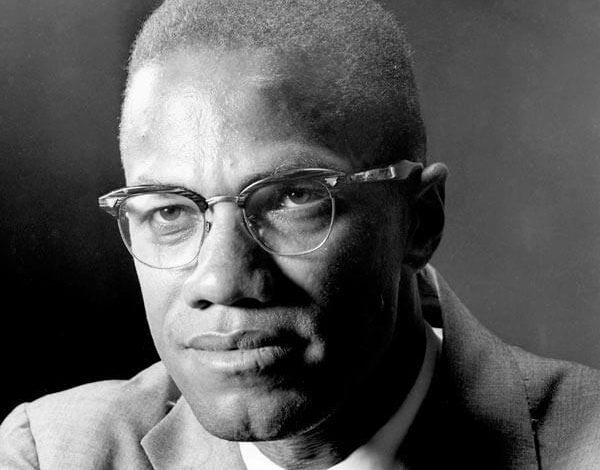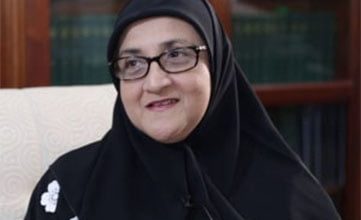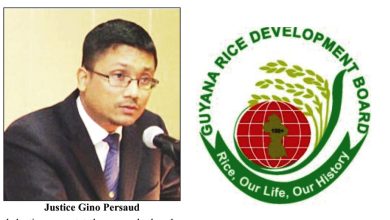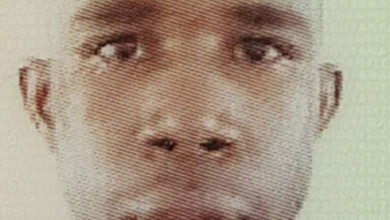Black History Month Celebrations: Malcolm X

On Feb. 21, 1965, Malcolm X, an African American nationalist and religious leader, whose mother hailed from Grenada, was assassinated while addressing his Organization of Afro-American Unity at the Audubon Ballroom in Washington Heights. He was 39.
Born Malcolm Little in Omaha, Nebraska, in 1925, Malcolm was the son of James Earl Little – a Baptist preacher who advocated the Black nationalist ideals of Marcus Garvey, Jamaica’s first national hero – and Louise Little, a homemaker.
According to History.com, threats from the Ku Klux Klan forced the family to move to Lansing, Michigan, “where his father continued to preach his controversial sermons, despite continuing threats.”
In 1931, History.com said Malcolm’s father was murdered by the white supremacist Black Legion, “and Michigan authorities refused to prosecute those responsible”
In 1937, Malcolm was taken from his family by welfare caseworkers, History.com said.
It said that, by the time he reached high school age, he had dropped out of school and moved to Boston, “where he became increasingly involved in criminal activities.”
In 1946, at 21, Malcolm was sent to prison on a burglary conviction, according to History.com.
“It was there he encountered the teachings of Elijah Muhammad, the leader of the Nation of Islam, whose members are popularly known as Black Muslims,” it said. “The Nation of Islam advocated Black nationalism and racial separatism.
“Muhammad’s teachings had a strong effect on Malcolm, who entered into an intense program of self-education and took the last name ‘X’ to symbolize his stolen African identity,” it added.
After six years, Malcolm was released from prison and became a “loyal and effective minister” of the Nation of Islam in Harlem, History.com said.
In contrast with civil rights leaders such as Martin Luther King, Jr., it said Malcolm X advocated self-defense and the liberation of African Americans “by any means necessary.”
“A fiery orator, Malcolm was admired by the African American community in New York and around the country,” History.com said.
In the early 1960s, it said Malcolm began to “develop a more outspoken philosophy than that of Elijah Muhammad, whom he felt did not sufficiently support the civil rights movement.”
In late 1963, History.com said Malcolm’s suggestion that President John F. Kennedy’s assassination was a matter of the “chickens coming home to roost” provided Elijah Muhammad, who believed that Malcolm had become too powerful, with “a convenient opportunity to suspend him from the Nation of Islam.”
A few months later, History.com said Malcolm formally left the organization and made a Muslim pilgrimage to Mecca, where he was “profoundly affected by the lack of racial discord among orthodox Muslims.”
He returned to America as El-Hajj Malik El-Shabazz and, in June 1964, founded the Organization of Afro-American Unity, “which advocated Black identity and held that racism, not the white race, was the greatest foe of the African American,” History.com said.
It said Malcolm’s new movement steadily gained followers, stating that Malcolm’s “more moderate philosophy” became increasingly influential in the civil rights movement, especially among the leaders of the Student Non-Violent Coordinating Committee.
On stage at the Audubon Ballroom on Feb. 21, 1965, Malcolm X was gunned down, as his pregnant wife and four daughters took cover in the front row, History.com said.
It said three members of the Nation of Islam—Mujahid Abdul Halim, Muhammad A. Aziz and Khalil Islam—were soon after charged with first-degree murder.
Islam and Aziz maintained their innocence, and, during the 1966 trial, Halim confessed to the crime and testified that Islam and Aziz were innocent. All three men were found guilty, however, and sentenced to 20 years to life in prison, History.com said.
In 2021, it said Aziz and Islam were exonerated after an investigation that included the discovery of key FBI documents withheld from the defense and prosecution during the trial. Aziz was 83 at the time of the exoneration; Islam had died in 2009.
Due largely to Malcom X’s efforts, Biography.com said the Nation of Islam grew from a mere 400 members at the time he was released from prison in 1952 to 40,000 members by 1960.
Biography.com said Malcolm Little had his first encounter with racism before he was even born.
“When my mother was pregnant with me, she told me later, ‘a party of hooded Ku Klux Klan riders galloped up to our home,’” Malcolm later remembered. “Brandishing their shotguns and rifles, they shouted for my father to come out.”
The harassment continued when Malcolm was four years old, and local Klan members smashed all of the family’s windows, Biography.com said.
To protect his family, it said Earl Little moved them from Omaha to Milwaukee, Wisconsin, in 1926 and then to Lansing, Michigan, in 1928.
However, the racism the family encountered in Lansing proved even greater than in Omaha, Biography.com said.
It said that, shortly after the Littles moved in, a racist mob set their house on fire in 1929, “and the town’s all-white emergency responders refused to do anything.”
“The white police and firemen came and stood around watching as the house burned to the ground,” Malcolm X later remembered.
Biography.com said Earl Little moved the family to East Lansing where he built a new home.
Two years later, in 1931, it said Earl Little’s dead body was discovered lying across the municipal streetcar tracks.
“Although Malcolm X’s family believed his father was murdered by white supremacists from whom he had received frequent death threats, the police officially ruled Earl Little’s death a streetcar accident, thereby ‘voiding’ the large life insurance policy he had purchased in order to provide for his family in the event of his death,” Biography.com said.
“Malcolm X’s mother never recovered from the shock and grief over her husband’s death,” it added. “In 1937, she was committed to a mental institution, where she remained for the next 26 years. Malcolm and his siblings were separated and placed in foster homes.”
In 1938, Biography.com said Malcolm was kicked out of school and sent to a juvenile detention home in Mason, Michigan.
“The white couple who ran the home treated him well, but he wrote in his autobiography that he was treated more like a ‘pink poodle’ or a ‘pet canary’ than a human being,” it said.
Biography.com said Malcolm attended Mason High School, where he was one of only a few Black students.
He excelled academically and was well-liked by his classmates, who elected him class president, Biography.com said.
It said a turning point in Malcolm Little’s childhood came in 1939, when his English teacher asked him what he wanted to be when he grew up, and he answered that he wanted to be a lawyer.
His teacher responded, according to Biography.com, “One of life’s first needs is for us to be realistic … you need to think of something you can be … why don’t you plan on carpentry?”
Having thus been told in no uncertain terms that there was no point in a Black child pursuing education, Malcolm X dropped out of school the following year, at the age of 15, Biography.com said.
It said Malcolm X became the minister of Temple No. 7 in Harlem and Temple No. 11 in Boston, while also founding new temples in Hartford and Philadelphia.
In 1960, he established a national newspaper, Muhammad Speaks, in order to further promote the message of the Nation of Islam, Biography.com said.
“His militant proposals — a violent revolution to establish an independent Black nation — won Malcolm X large numbers of followers as well as many fierce critics,” it said.
By the early 1960s, Biography.com said Malcolm X had emerged as a leading voice of a radicalized wing of the civil rights movement, presenting a “dramatic alternative to Martin Luther King Jr.’s vision of a racially-integrated society achieved by peaceful means.”
After his epiphany at Mecca, Biography.com said Malcolm X returned to the United States “less angry and more optimistic about the prospects for a peaceful resolution to America’s race problems.”
“The true brotherhood I had seen had influenced me to recognize that anger can blind human vision,” Biography.com quoted Malcolm X as saying. “America is the first country … that can actually have a bloodless revolution.”
Just as Malcolm X appeared to be embarking on an ideological transformation with the potential to dramatically alter the course of the civil rights movement, Biography.com said he was assassinated.
In the immediate aftermath of Malcolm X’s death, Biography.com said commentators largely ignored his recent spiritual and political transformation, and criticized him as a violent rabble-rouser.
“But especially after the publication of ‘The Autobiography of Malcolm X’, he will be remembered for underscoring the value of a truly free populace by demonstrating the great lengths to which human beings will go to secure their freedom,” it said.
“Power in defense of freedom is greater than power in behalf of tyranny and oppression,” Malcolm X said. “Because power, real power, comes from our conviction which produces action, uncompromising action.”





